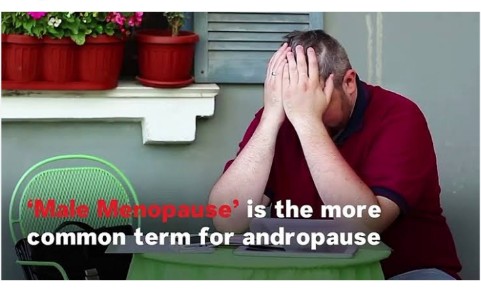Menopause has long been associated with women, marking a significant stage in their lives characterized by hormonal changes and various physical and emotional symptoms. However, in recent years, the concept of male menopause, often referred to as “andropause,” has gained attention. But is male menopause a real phenomenon, or is it merely a myth? In this blog post, we’ll delve into the concept of male menopause, exploring its existence, symptoms, and potential causes.
Understanding Male Menopause
Is Male Menopause Real?
The term “male menopause” is not entirely accurate. Unlike women, men do not experience a complete cessation of reproductive function, as women do with the end of their menstrual cycles. However, men do undergo hormonal changes as they age, which can lead to various physical and emotional symptoms. These changes are primarily related to declining testosterone levels.
Symptoms of Male Menopause
While not all men will experience these symptoms, some may go through a range of physical and emotional changes as they age, which are often associated with male menopause:
Fatigue: A decrease in energy levels and persistent tiredness can be a common complaint.
Mood Swings: Some men may experience mood swings, irritability, or even depression.
Sexual Issues: Decreased libido, erectile dysfunction, and a decline in sexual performance can occur.
Sleep Problems: Insomnia or disrupted sleep patterns might become more prevalent.
Weight Gain: Changes in body composition, including increased fat and decreased muscle mass, can be a concern.
Memory and Concentration: Some men report issues with memory and concentration.
The Role of Testosterone
Testosterone is a critical hormone in male health, responsible for various physiological functions. Its decline with age plays a pivotal role in the symptoms associated with male menopause. Let’s explore this further with subtopics:
Testosterone Production
Testosterone is primarily produced in the testes, and its production typically starts to decline around the age of 30. This gradual decrease in testosterone levels continues as men age. While it’s a natural part of the aging process, the rate of decline can vary among individuals.
Effects of Declining Testosterone
The decline in testosterone can impact various aspects of a man’s health and well-being:
Muscle Mass: Reduced testosterone levels can contribute to a decrease in muscle mass and strength, making it harder to maintain a fit and active lifestyle.
Bone Health: Testosterone is essential for maintaining bone density. Low levels can increase the risk of osteoporosis and fractures.
Sexual Function: Testosterone is crucial for sexual health. Lower levels can lead to reduced libido, difficulty achieving or maintaining erections, and a decline in overall sexual performance.
Mood and Mental Health: Changes in testosterone levels can affect mood, leading to irritability, mood swings, and even depression.
Cognitive Function: Some research suggests a potential link between low testosterone levels and cognitive decline, including issues with memory and concentration.
Energy Levels: Testosterone plays a role in energy and vitality. A decrease in testosterone can result in fatigue and a general lack of energy.
Treatment Options
For men experiencing significant symptoms due to low testosterone levels, there are treatment options available. This may include testosterone replacement therapy (TRT) through injections, gels, or patches. However, TRT should only be considered after a thorough evaluation by a healthcare professional, as it may not be suitable for everyone and can have side effects.
Lifestyle Factors and Testosterone
Maintaining healthy testosterone levels isn’t solely reliant on medical intervention. Lifestyle choices can also play a significant role:
Diet: A balanced diet rich in nutrients can support hormonal health. Nutrients like zinc and vitamin D are particularly important for testosterone production.
Exercise: Regular physical activity, especially strength training and resistance exercises, can help maintain muscle mass and support testosterone levels.
Stress Management: Chronic stress can lead to increased cortisol levels, which can negatively impact testosterone. Stress reduction techniques such as meditation or yoga can be beneficial.
Sleep: Quality sleep is essential for hormonal balance. Aim for 7-9 hours of uninterrupted sleep each night.
Monitoring Testosterone Levels
Men concerned about their testosterone levels can undergo blood tests to measure their hormone levels. These tests can help determine if low testosterone is a contributing factor to their symptoms.
Other Factors
Various lifestyle factors can also contribute to the symptoms associated with male menopause, including stress, poor diet, lack of exercise, and substance abuse. Therefore, addressing these factors can often alleviate some of the symptoms.
Conclusion
While the term “male menopause” may not be entirely accurate, there is evidence to suggest that men do undergo hormonal changes as they age, which can lead to a range of physical and emotional symptoms. These changes are primarily related to declining testosterone levels. However, it’s important to recognize that not all men will experience these symptoms, and they can often be attributed to a combination of factors, including lifestyle and genetics.
If you or someone you know is experiencing symptoms that resemble male menopause, it’s essential to consult a healthcare professional for a proper evaluation and guidance on managing these changes. Understanding that aging is a natural process and taking proactive steps to maintain overall health can go a long way in improving the quality of life during the aging process.


 Home
Home









